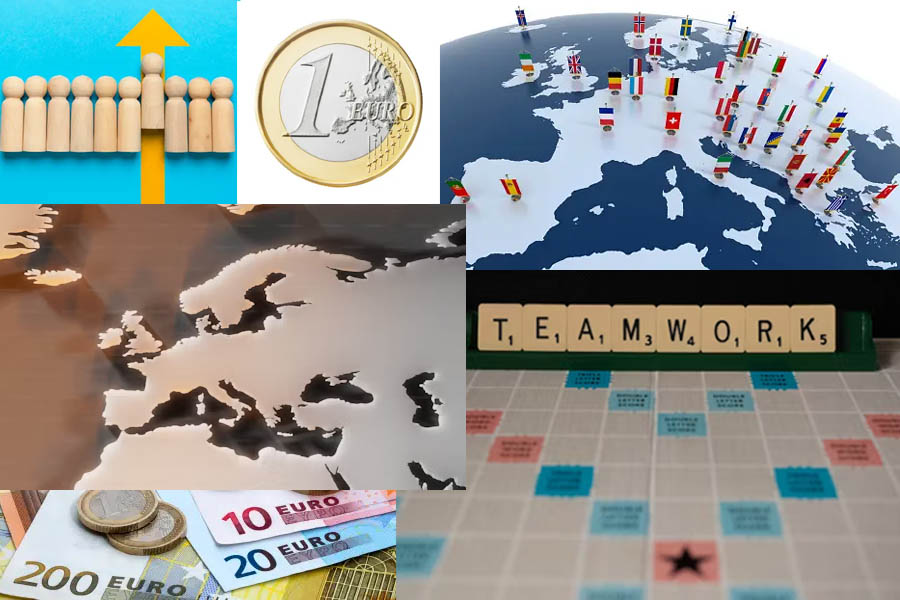
The traditional model of dominance by Europe's two largest members, Germany and France, has long been showing signs of strain. Recent years, marked by the COVID-19 pandemic and the conflict in Ukraine, have catalyzed a reevaluation of the European project, resulting in a more fluid and dynamic geography of power. As Europe grapples with a series of crises, including security threats, economic challenges, and the rise of populism, the continent finds itself at a crossroads with no clear leader emerging.
The Changing Landscape of Influence
Not too long ago, Angela Merkel stood as the undisputed leader of Europe. However, her successor, Olaf Scholz, has not stepped into her shoes, and Emmanuel Macron, the French president, faces domestic challenges that impede his ability to assume a prominent European leadership role. The absence of a clear leader has created a vacuum where influence depends on the specific issues at stake.
Defense and Security: Central Europe's Emergence
The security landscape in Europe has shifted, particularly after Russia's invasion of Ukraine in 2022. Central European countries, led by Poland and the Baltic states, have gained influence, pushing defense and eastward enlargement to the forefront of the European agenda. The EU's commitment to sending weapons to Ukraine and the reconsideration of enlargement, with Ukraine now in formal accession talks, underscore a shift in the center of gravity eastward.
However, despite their newfound influence in security matters, central European countries still face challenges in other policy areas, such as economic policy, where French ideas are gaining prominence.
Economic Policy: A Move towards Statist French Lines
Economic considerations are increasingly being shaped by French ideals of strategic autonomy. Driven by concerns about global supply chains and fears of disruption due to pandemics or geopolitical instability, France advocates for greater self-sufficiency within Europe. This approach challenges traditional economic policies and emphasizes a more controlled and protectionist approach.
Macron's assertion that Europe has been "naive" in its global dealings has resonated, leading to a shift in economic strategies. The absence of the UK, a historical advocate for free-market policies, has allowed France's dirigiste impulses to prevail. However, this approach faces resistance from northern European allies, and the balance of power in economic policy remains in flux.
The Role of Centralized Institutions in Brussels
Amidst the absence of a clear leadership figure, the European Commission, under Ursula von der Leyen, has accumulated more power than ever before. The Commission's role expanded during the COVID-19 pandemic, overseeing vaccine procurement and managing the Next Generation EU recovery fund. This increased discretion over EU funds has given the Commission more authority, enabling it to influence member states on various issues, including the rule of law.
The Federalist Question
The growing influence of the European Commission prompts questions about the emergence of a federal Europe. While Hungary and Poland may perceive it as such, there are limits to the Commission's powers. Von der Leyen's influence depends on cooperation with national capitals, and her reappointment after the upcoming European elections is not guaranteed. The EU's total spending remains relatively small, indicating that the idea of a European superstate is still far from realization.
Elections and the Future of European Power
As Europe braces for the upcoming European Parliament elections, populist movements gain ground in some countries, challenging the post-war consensus on liberal values and the rule of law. The results may reshape the European order and influence the continent's trajectory in the coming years.
The evolving dynamics of European power reflect a continent in transition. From shifting security priorities to economic policy changes and the growing influence of centralized institutions, Europe is navigating a complex geopolitical landscape. The absence of a clear leader and the rise of various challenges underscore the need for adaptive and cooperative approaches to address the multifaceted issues facing the continent. As Europe awaits the outcomes of elections and the geopolitical landscape continues to evolve, the future direction of European power remains uncertain but undoubtedly intriguing.